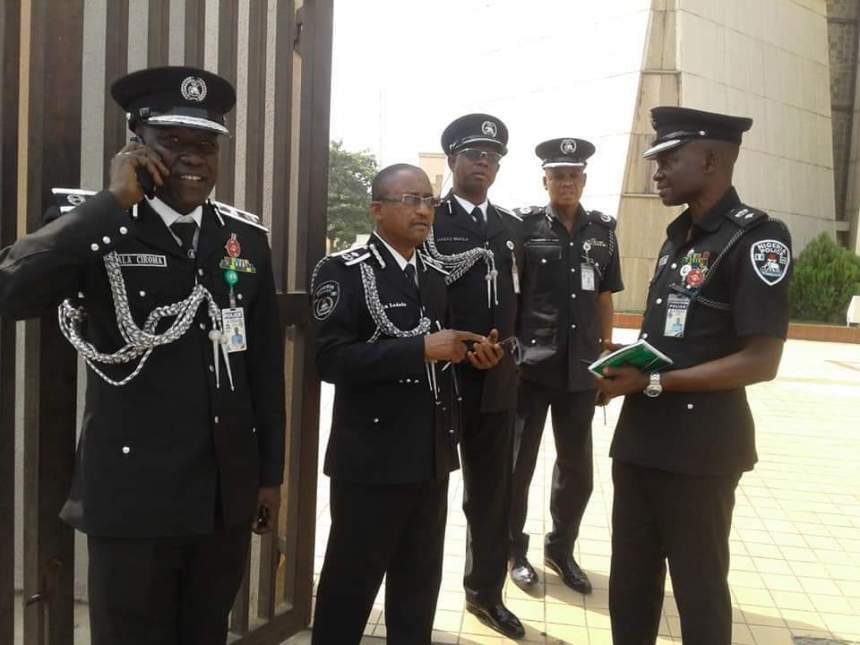
Kabir Akingbolu is a member of the Ekiti State Judicial Commission and Lagos based human rights lawyer. In this interview with Olugbenga Soyele, he speaks on the rule of law, security, state police, corruption, and sundry issues
Are you in support of the creation of state police as a way of stemming the growing trend of insecurity in the country?
I don’t think Nigeria is mature for state police. I want to liken the creation of state police to what is happening with the States Independent Electoral Commission (SIECs).
From the time SIECs have been conducting local government elections, have your hear of when an opposition party is declared a winner anywhere? The SIECs are under the firm control of state governors and that is why each time local government elections are held in any state, it is the governors’ parties that prevail.
So, if state police is created in Nigeria, the problem will be that another department of state government will be created and this will be used to witch- hunt the opposition. I don’t think we are matured enough to operate state police.
What I think we should do is to examine the challenges that are making the existing police structure ineffective. One way of doing this is to ensure that what is due to every state command go directly to their respective Commissioner of Police.
This will address the issue of paucity of funds at each command and better positioned the officers to render quality services to the people. I believe with all these, we will have some sanity in the system.
The solution to insecurity problems does not lie in creation of state police but making the one in existence to work effectively.
Despite several millions of naira being received by state governors monthly as security vote, insecurity has been worsening day by day in the country. Do you think there is any justification for governors to continue to receive security votes?
The issue of security vote is corruption personified. The Constitution does not recognize it anywhere and there is no law of the land that recognize security vote. It was just coined out from nowhere.
Now, the most dangerous trend about the whole issue is that each governor will determine his own security vote. Where do you see any country being run that way?
It is the state governor that will determine how much he want to collect on a monthly basis and when either the Economic and Financial Crimes Commission (EFCC) or Independent Corrupt Practices and Other Related Offences Commission (ICPC) want to beam their searchlight on state finances, nobody talked about security vote.
The least a state governor collect as security vote in Nigeria at the moment is N300 million per month. As poor as Ekiti is under Fayose, it was N350 million monthly. That tells you that some other states can be collecting as high as N900 million per month.
So, when you look at some of these issues, you will begin to ask questions about who is deceiving who in this country? What the governors normally do each time they collect the security vote is that they will just give a small part of it to the Commissioner of Police and pocket the rest. They don’t do anything with it.
No government in Nigeria has ever come out to disclose how security vote was expended and questions were never asked by those that are expected to do so.
WHY do you think it is difficult for the administration of President Muhammadu Buhari to fight the corruption associated with security votes’ allocation to governors?
Before we even go to issue of corruption associated with security votes, generally, we must ask ourselves, is the government of the day truly fighting corruption? How many cases have the EFCC won?
We see the greatest of all offenders escaping justice. We have seen someone who was convicted of stealing money running into several billions of naira that was given an option N750, 000 fine.
You say you are fighting corruption, your language suggest it, but your body language abhors it. A lot of people were in government and accusing fingers were pointing in their direction. Nothing has happened to them till date.
If these individuals were not questioned, how can the Buhari’s government convinced people that it is fighting corruption? I don’t see government fighting any corruption, at all.
AS a rights activist, why have you not filed a lawsuit regarding the corruption associated with security vote when you see that government is not forthcoming?
In Nigeria, our laws have become a burden, particularly to some of us who are rights activists. When you want to fight injustice, you will be the first victim of the same injustice.
I recalled when I was a Corp member in Yobe State, N500 was being collected from each corper before we can do clearance and I had to take NYSC to court. I later got a court’s order stopping the illegal payment. The court order stopped the NYSC officials from removing the money from our accounts. My colleagues could not believe this could happen.
However, I paid a price for what I did. Up till today, my discharge certificate as a corper was never released to me. With all these, am I not a victim of injustice I was trying to fight?
This is the problem in Nigeria. It is like our law has refused to develop. Look at what happened in South Africa where former President Jacob Zuma was asked to refund huge sums of money to the nation’s coffers after he was found to have spent state funds on personal issues.
This kind of thing is rare if not non-existent in Nigeria. What we usually hear from court is that there is no ‘locus standi’. The court will ask you to demonstrate how your interest is far and above others. This is the predicament we found ourselves.
It may also interest you to know that the late Chief Gani Fawehinmi never won any public interest case till he died.
The legal tussle over the Osun State governorship election was recently resolved by the Supreme Court on ‘technical ground’ without any pronouncement on the conclusiveness or otherwise of the election. What is your take on this?
The All Progressive Congress (APC) has hinged its appeal against the Tribunal’s ruling which upheld Adeleke’s victory on procedural lapses and this is fundamental.
Even though majority decisions went the way of Senator Adeleke at the Tribunal, it was unfortunate that on the day an evidence was given, one of judges who upheld Adeleke’s victory at the poll was absence.
Majority of the Supreme Court Justices that sat on the matter believed that it is wrong for the Tribunal judge to pass judgement when he was not around on a particular day that an evidence was given. When this was decided, the apex court will no longer go into the merit of the case. There was a procedural lapses which is very fundamental and this is what the Supreme Court looked at.
You were recently appointed as a member of the Ekiti State Judicial Commission, what innovation are you and other members of the Commission bringing on board to reposition the judiciary in the State?
We are trying to make Ekiti State a model. In essence, we want to see a judiciary that does things differently. For instance, we want to look at the length of time spent in prosecuting cases and ensure that this is done at a faster pace. We now have the Ekiti State Civil Procedure Law and efforts are on to also reposition the Ministry of Justice.
